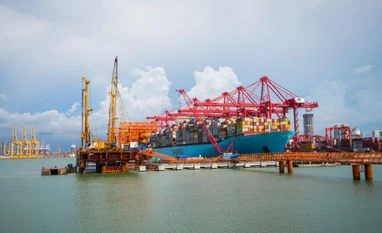The key to Sri Lanka's transition from stabilisation to full economic recovery is sustaining the ongoing reform momentum, the IMF said on Friday after it decided to release the third tranche of $336 million from the $2.9 billion four year bailout package to the island nation.
While releasing the third tranche, the IMF on Thursday noted that Sri Lanka's economy has started recovering, inflation remained low, revenue collection was improving, and reserves continued to accumulate but warned that despite these positive developments, the economy is still vulnerable and the path to debt sustainability remains knife-edged.
We encourage the (Sri Lankan) authorities to continue to build on these hard-won gains and remain steadfast with their reform commitments, Peter Breuer, the head of the Sri Lanka IMF mission, told reporters here on Friday.
In April 2022, Sri Lanka declared its first-ever sovereign default since gaining Independence from Britain in 1948. The unprecedented financial crisis led President Ranil Wickremesinghe's predecessor Gotabaya Rajapaksa to quit office in 2022.
The IMF is insistent on Sri Lanka maintaining its reform momentum and action for debt sustainability and has stressed the swift finalisation of MoUs with creditors, including the Exim Bank of China.
The reforms, however, have been met with political resistance as the opposition parties have pledged to revise the International Monetary Fund (IMF) programme claiming it had heaped a burden on the public hit by the economic crisis.
With the presidential election due to happen later in the year, Breuer said: Let me reiterate from our perspective that achieving the programme objectives is the key priority to give Sri Lanka a chance to emerge from one of the worst crises in its history. So there will be different proposals on how to achieve that and we are willing to listen to different views on how these programme objectives can be reached.
)